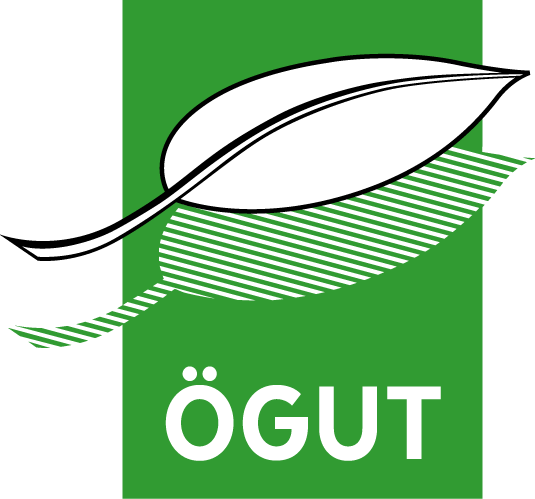Projects
Projects per topic
Projects
-
Sustainable Finance Qualification of Financial Advisors (EURENI)
 Increasing knowledge about regulatory changes and the qualification on sustainability issues among financial advisors.
Increasing knowledge about regulatory changes and the qualification on sustainability issues among financial advisors. -
Most important levers of climate change adaptation in Austria
 The aim of the project A-LEVERS is to build bridges between science and practice and to support
decision makers in Austria to implement climate change adaptation in the best possible way and to avoid maladaptation.
The aim of the project A-LEVERS is to build bridges between science and practice and to support
decision makers in Austria to implement climate change adaptation in the best possible way and to avoid maladaptation.
-
HolzKreislauf - Study on solutions for circular timber construction in Austria
 The aim of the study is to determine the circularity of various timber building product groups in construction and to identify the most important challenges and fields of action in the various construction life cycle phases to improve circularity, as well as to visualize the mass flows in 2023 and in an optimal scenario for 2050.
The aim of the study is to determine the circularity of various timber building product groups in construction and to identify the most important challenges and fields of action in the various construction life cycle phases to improve circularity, as well as to visualize the mass flows in 2023 and in an optimal scenario for 2050. -
Klimafreundliche Gesundheitseinrichtungen_Scale up!
 In 2023, the Climate and Health Competence Centre of Gesundheit Österreich GmbH launched the pilot project "Advice for climate-friendly healthcare facilities", in which 320 healthcare facilities took part. In a study, ÖGUT is investigating how these consultations can be scaled up in order to efficiently and effectively support the approximately 22,600 healthcare facilities in Austria in their transformation towards climate neutrality.
In 2023, the Climate and Health Competence Centre of Gesundheit Österreich GmbH launched the pilot project "Advice for climate-friendly healthcare facilities", in which 320 healthcare facilities took part. In a study, ÖGUT is investigating how these consultations can be scaled up in order to efficiently and effectively support the approximately 22,600 healthcare facilities in Austria in their transformation towards climate neutrality. -
klimaaktiv Awards Event – Redesign and Moderation
Within the framework of klimaaktiv, training and further education are offered in climate-relevant fields of work. The annual award ceremony for graduates is being redesigned. The focus of the "Awards Event 2.0" will be on lively insights into the graduates' everyday working lives, which will whet the appetite for learning green skills.
-
Decarbonization of the heating system in a condominium and development of an online platform to support decision-makers
 For a residential complex in the 17th district in Vienna, the thermal retrofitting and decarbonization of the heating system are being designed together with the 95 apartment owners and suitable planning and decision-making processes are being developed.
Based on the experiences, the online platform cobee (collaborative on the energy transition) is being set up to support future interested parties/homeowners
For a residential complex in the 17th district in Vienna, the thermal retrofitting and decarbonization of the heating system are being designed together with the 95 apartment owners and suitable planning and decision-making processes are being developed.
Based on the experiences, the online platform cobee (collaborative on the energy transition) is being set up to support future interested parties/homeowners -
Study on Gender Balance in the R&I Sector to Improve the Role of Women in the Energy Transition
The study on gender balance in R&I, commissioned by European Climate, Infrastructure and Environment Executive Agency (CINEA), aims to help the European Commission improve the role of women in the energy transition.
-
Promotion of Sustainable Digital Finance in Europe (DigiFin)
 A contribution to the EU's environmental sustainability goals by promoting sustainable digital finance.
A contribution to the EU's environmental sustainability goals by promoting sustainable digital finance. -
Assembly for Climate Action
 What do we have to do today in order to live in a climate-healthy future tomorrow? Around one hundred randomly selected citizens from all regions and all parts of Austrian society grappled with this question. Together, they made up the Climate Assembly. As a microcosm of Austria, they came up with measures to help actively shape the climate future of our country.
What do we have to do today in order to live in a climate-healthy future tomorrow? Around one hundred randomly selected citizens from all regions and all parts of Austrian society grappled with this question. Together, they made up the Climate Assembly. As a microcosm of Austria, they came up with measures to help actively shape the climate future of our country. -
Requirements for Recyclability of Solid Building Materials
 The study shows the current challenges, opportunities and potentials regarding the circularity of the solid construction industry as well as the relevant actors. Future fields of action for necessary research and development to foster the circular economy in the mineral building materials sector were identified and recommendations were derived.
The study shows the current challenges, opportunities and potentials regarding the circularity of the solid construction industry as well as the relevant actors. Future fields of action for necessary research and development to foster the circular economy in the mineral building materials sector were identified and recommendations were derived.
